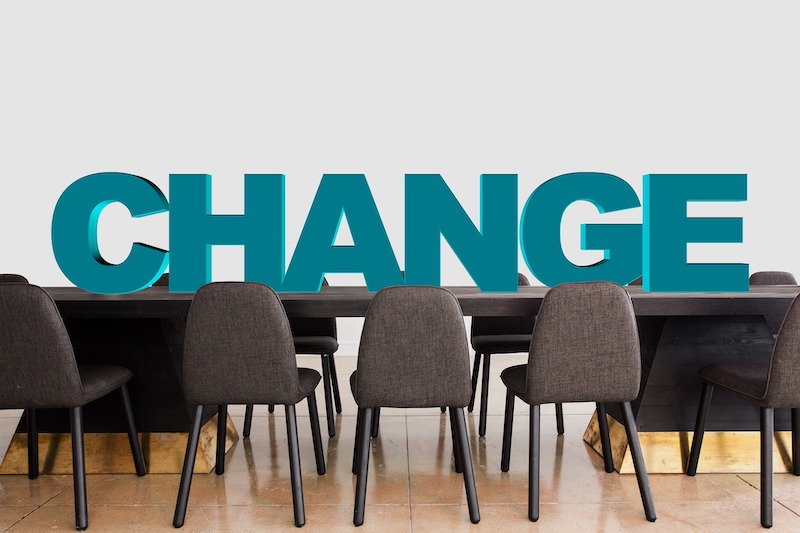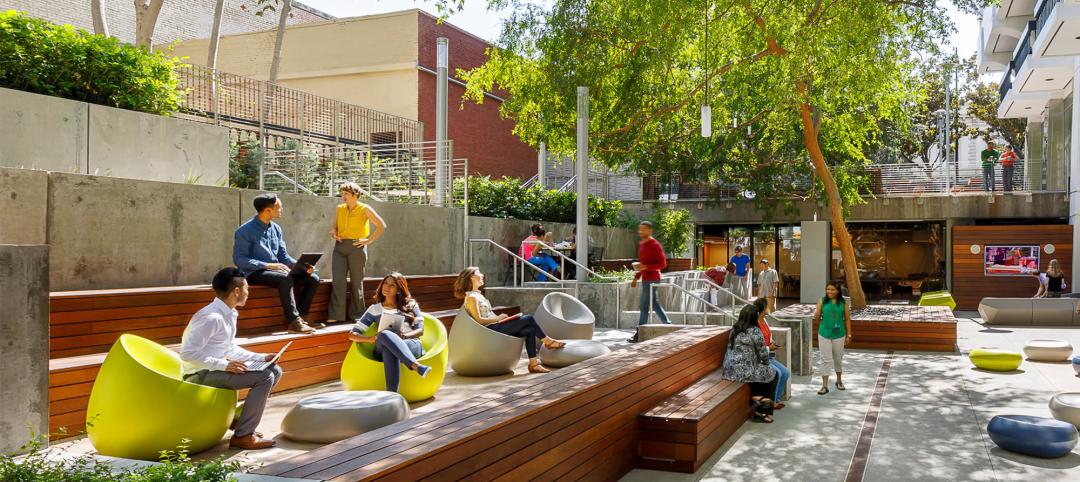The intensifying race to find and keep talent in an increasingly competitive digital business environment have enabled employees to reshape the workplace in their image, including access to a flexible work environment and schedule, overall health and well-being programs, childcare, meal services, and sustainability initiatives.
And the latest data show that employers now see that these investments are critical to their workers’ business performances.
These are among the findings from new “future of work” research, conducted by JLL and Harvard Business Review, which previewed at the World Economic Forum in Davos, Switzerland, last January.
A poll of 342 executives found that 83% agree that an attractive and flexible work environment is essential to attract and retain the talent they need to innovate and deliver business value in a competitive digital business environment and tight labor market.
More than half of the organizations these executives represent (57%) rate “human experience” as a top priority. “When we talk about human experience in the workplace, it’s really a recognition that, first and foremost employees are human beings with full lives beyond work that encompass friends, families, and varied interests, passions, and commitments,” states the authors of this research report. “So human experience efforts focus on improving how fluidly workers can integrate all of these pieces of the puzzle.”
This thinking is in line with a recent story in the New York Times that examined how wellness initiatives were ramping up in workplaces across the country. Corporate Wellness Magazine’s website also recently ran an article about how offices are merging tech and design for workplace wellness.
Over the past two years, almost one-third (32%) of JLL/Harvard survey respondents adjusted workplace design as a means to enhance the employee’s experience on the job. Another 31% adjusted workplace policies to accommodate flexible work schedules and working remotely.
And 53% of organizations plan to invest in human experience over the next two years. In that effort, more organizations are seeking their employees’ feedback and changes regarding workplace changes.
Already, more than half (53%) of respondents provide workers with the digital technology they need to work remotely or on a flexible schedule. And more than two-fifths of respondents have been customizing tis technology to employee preferences, by providing options to accommodate different people’s work styles and preferences.
A strong majority of respondents also place as a top priority the development of programs to support their employees’ health and well-being. For example, 35% of organizations are providing workplace amenities such as childcare and meal services, and 24% of organizations offer onsite recreation equipment.
Employee demand is also driving sustainability initiatives, say 55% of the organizations polled.
These efforts often result in more effective recruitment and retention. Because of their human experience initiatives, 36% of organizations report greater success retaining talent, 44% report improved employee morale, and 34% report improved productivity.
The research also found that:
•43% of organizations provide an appealing physical environment that fosters professional collaboration.
•42% offer new health and wellness benefits at little or no cost to employees.
•44% providing employees with opportunities, such as volunteer programs, to make meaningful social contributions unrelated to work.
The benefits from human experience initiatives include:
•greater brand image and recognition (29% of organizations polled).
•greater innovation (28%).
•greater visibility in the market and community (28%).
•greater customer satisfaction (27%).
•better relationships with suppliers and partners (21%).
•greater profitability (17%).
Related Stories
Adaptive Reuse | Mar 30, 2024
Hotel vs. office: Different challenges in commercial to residential conversions
In the midst of a national housing shortage, developers are examining the viability of commercial to residential conversions as a solution to both problems.
Sustainability | Mar 29, 2024
Demystifying carbon offsets vs direct reductions
Chris Forney, Principal, Brightworks Sustainability, and Rob Atkinson, Senior Project Manager, IA Interior Architects, share the misconceptions about carbon offsets and identify opportunities for realizing a carbon-neutral building portfolio.
Office Buildings | Mar 28, 2024
Workplace campus design philosophy: People are the new amenity
Nick Arambarri, AIA, LEED AP BD+C, NCARB, Director of Commercial, LPA, underscores the value of providing rich, human-focused environments for the return-to-office workforce.
Office Buildings | Mar 27, 2024
A new Singapore office campus inaugurates the Jurong Innovation District, a business park located in a tropical rainforest
Surbana Jurong, an urban, infrastructure and managed services consulting firm, recently opened its new headquarters in Singapore. Surbana Jurong Campus inaugurates the Jurong Innovation District, a business park set in a tropical rainforest.
Adaptive Reuse | Mar 26, 2024
Adaptive Reuse Scorecard released to help developers assess project viability
Lamar Johnson Collaborative announced the debut of the firm’s Adaptive Reuse Scorecard, a proprietary methodology to quickly analyze the viability of converting buildings to other uses.
Sustainability | Mar 21, 2024
World’s first TRUE-certified building project completed in California
GENESIS Marina, an expansive laboratory and office campus in Brisbane, Calif., is the world’s first Total Resource Use and Efficiency (TRUE)-certified construction endeavor. The certification recognizes projects that achieve outstanding levels of resource efficiency through waste reduction, reuse, and recycling practices.
Office Buildings | Mar 21, 2024
Corporate carbon reduction pledges will have big impact on office market
Corporate carbon reduction commitments will have a significant impact on office leasing over the next few years. Businesses that have pledged to reduce their organization’s impact on climate change must ensure their next lease allows them to show material progress on their goals, according to a report by JLL.
Adaptive Reuse | Mar 21, 2024
Massachusetts launches program to spur office-to-residential conversions statewide
Massachusetts Gov. Maura Healey recently launched a program to help cities across the state identify underused office buildings that are best suited for residential conversions.
Office Buildings | Mar 21, 2024
BOMA updates floor measurement standard for office buildings
The Building Owners and Managers Association (BOMA) International has released its latest floor measurement standard for office buildings, BOMA 2024 for Office Buildings – ANSI/BOMA Z65.1-2024.
Sustainability | Mar 13, 2024
Trends to watch shaping the future of ESG
Gensler’s Climate Action & Sustainability Services Leaders Anthony Brower, Juliette Morgan, and Kirsten Ritchie discuss trends shaping the future of environmental, social, and governance (ESG).

















